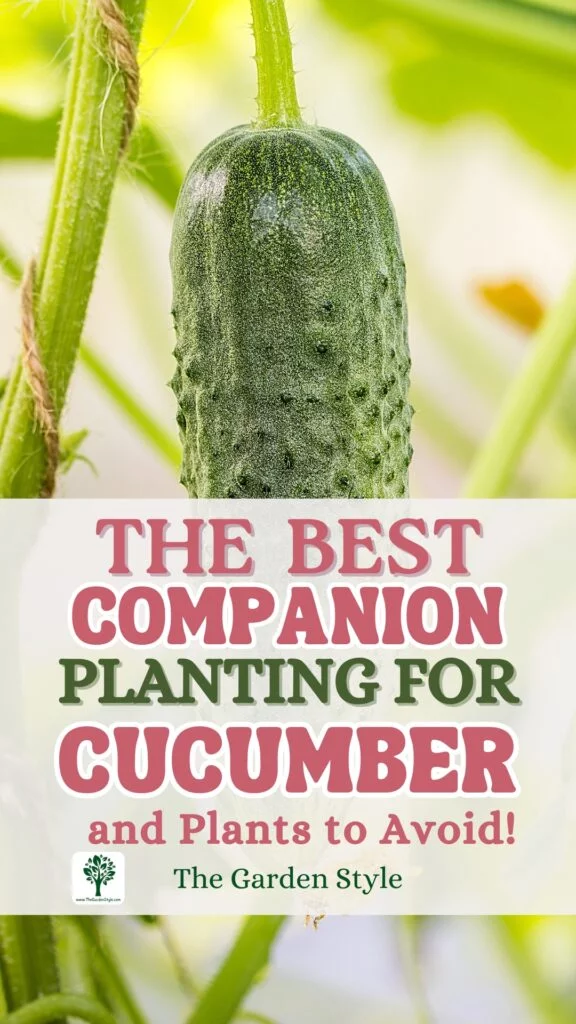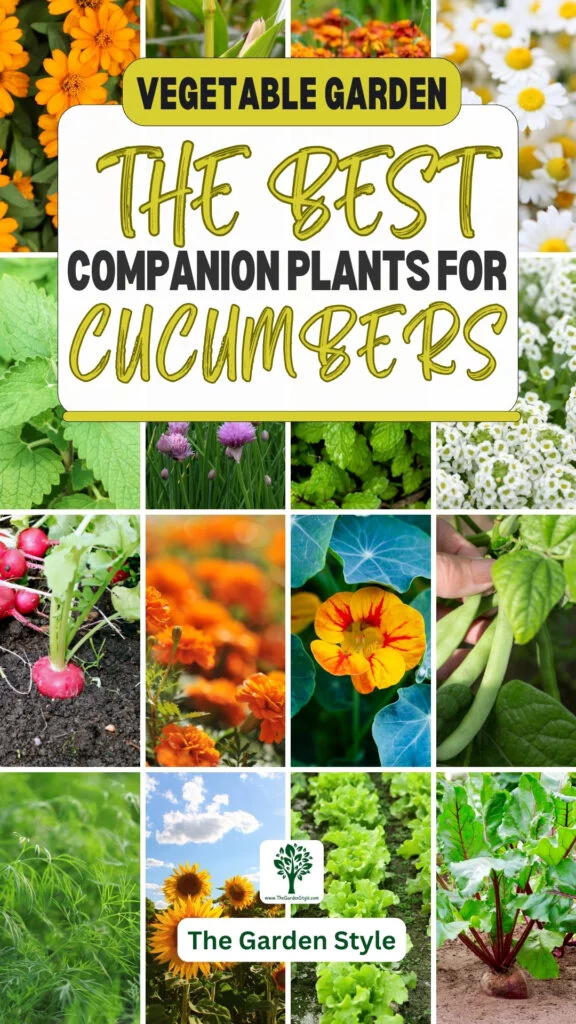Cucumbers are a refreshing and versatile addition to any vegetable garden. While they may seem like a simple crop to grow, carefully selecting the right companion plants can make a world of difference in their health, yield, and overall garden harmony. In this guide, we’ll explore the best companion plants for cucumbers, as well as those you’ll want to avoid.
Table of Contents
Understanding Companion Planting
Companion planting is the practice of growing certain plants together for their mutual benefit. These plants can help each other in various ways, such as repelling pests, attracting beneficial insects, improving soil quality, or providing physical support. By choosing the right companions for your cucumbers, you can create a balanced and productive ecosystem in your garden.
The 15 Best Companion Plants for Cucumbers
| Companion Plants | Benefits for Cucumbers |
| Radishes | Deter cucumber beetles, loosen the soil |
| Marigolds | Repel nematodes and other pests, deter rabbits |
| Nasturtiums | Trap crop for aphids, add nutrients to the soil |
| Beans | Nitrogen fixation, provide support for vines |
| Dill | Attract beneficial insects, deter spider mites |
| Sunflowers | Provide shade and support for vines |
| Lettuce | Provide shade for cucumber roots |
| Beets | Deter cucumber beetles |
| Catnip | Repel aphids, ants, and other pests |
| Chives | Deter aphids and other pests |
| Mint | Deter rodents and other pests |
| Alyssum | Attract beneficial insects, improve soil |
| Calendula | Deter nematodes and other pests |
| Chamomile | Improve growth and flavor, deter pests |
| Corn | Provide partial shade and support for vines |
Radishes
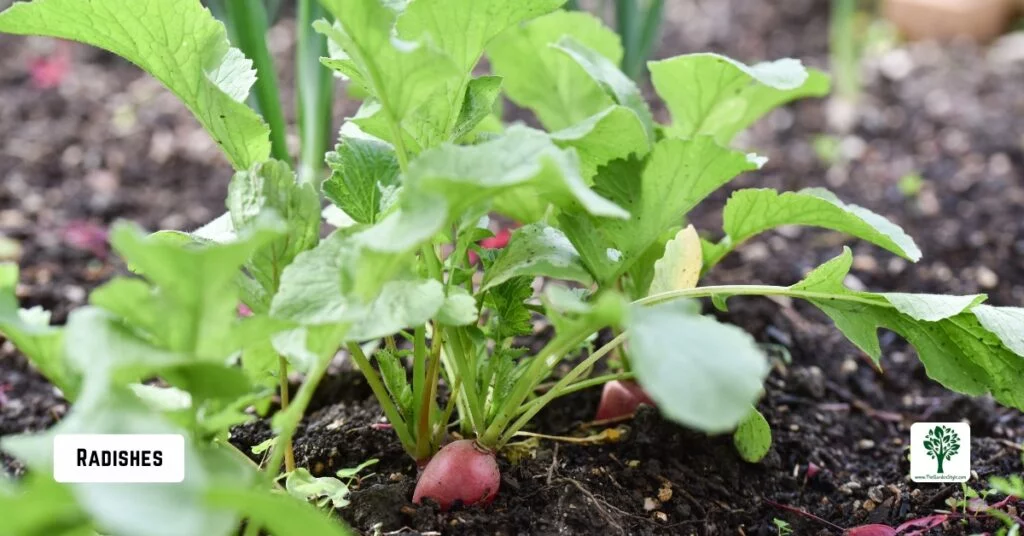
Radishes may seem like an unlikely companion for cucumbers, but they can be incredibly beneficial. Their pungent aroma deters cucumber beetles, which can otherwise wreak havoc on your cucumber plants. Additionally, radishes have a unique ability to loosen and aerate the soil as they grow, creating a more favorable environment for cucumber roots to thrive. Learn more about how to grow radish.
Marigolds
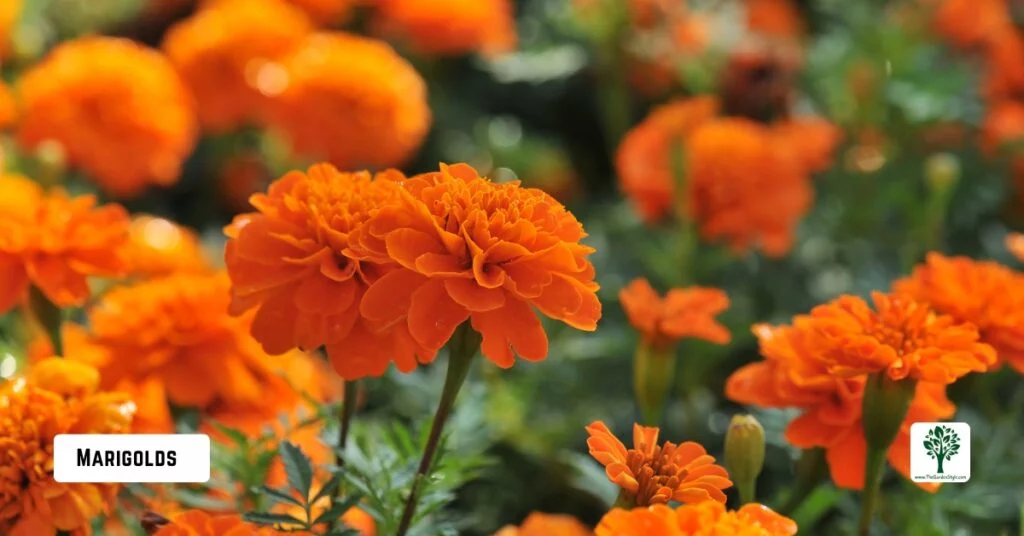
Marigolds are classic companion plants for many vegetables, including cucumbers. These bright flowers not only add a pop of color to your garden but they also act as a natural pest deterrent. Marigolds release a strong scent that repels nematodes, which can harm your cucumber’s roots. Additionally, their pungent aroma can confuse and deter other pests, like cucumber beetles and rabbits. Learn how to grow Marigolds.
Nasturtiums
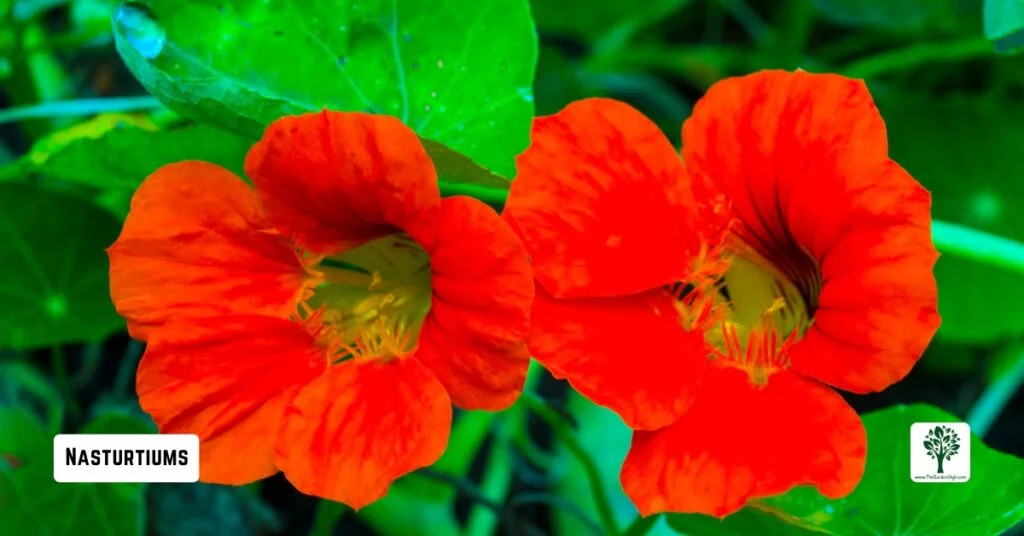
Nasturtiums are another excellent companion for cucumbers. These edible flowers act as a trap crop, luring aphids and other pests away from your cucumber plants. Additionally, nasturtiums help to add nutrients to the soil as their leaves and stems decompose, benefiting the cucumber’s growth.
Beans
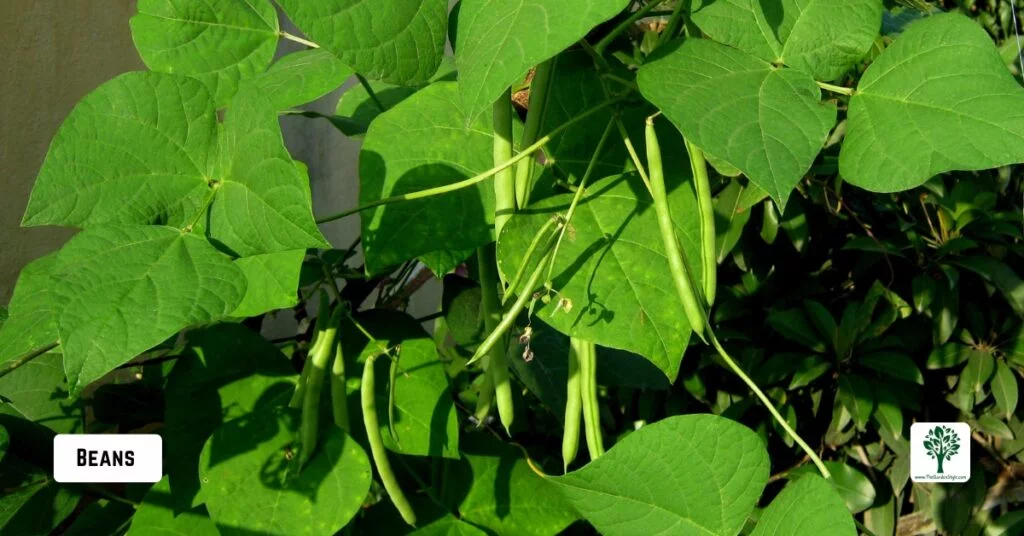
Beans and cucumbers make a great pairing in the garden. Beans are nitrogen fixers, meaning they take nitrogen from the air and convert it into a form that plants can use. This process enriches the soil with nitrogen, which is essential for cucumber growth and development. Additionally, the sturdy bean stalks can support the sprawling cucumber vines.
Dill
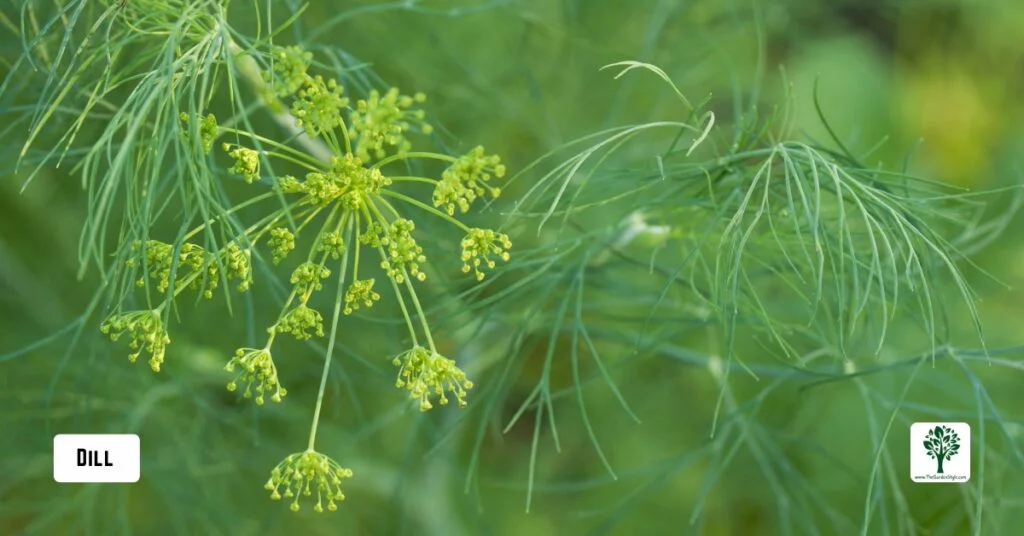
Dill is a fragrant herb that can make a great companion for cucumbers. Its strong aroma attracts beneficial insects, like ladybugs and lacewings, which can help control pests on your cucumber plants. Additionally, dill is known to deter spider mites, which can be a nuisance for cucumbers and other cucurbits. Learn how to grow dill.
Sunflowers
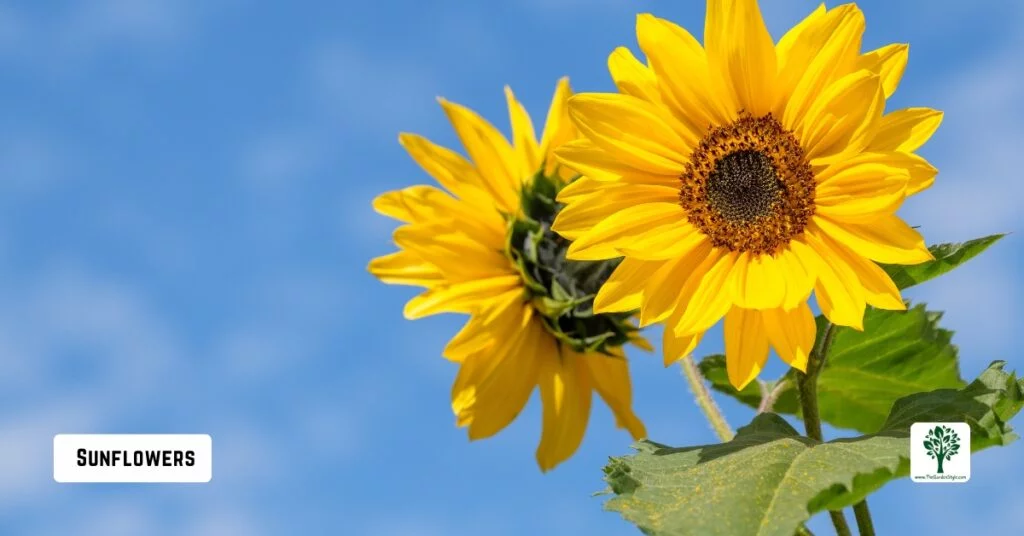
Sunflowers are an excellent companion for cucumbers, particularly for their ability to provide shade and support. As sunflowers grow tall, they can offer partial shade for the cucumber plants, helping to prevent them from becoming stressed in hot summer conditions. Additionally, the sturdy sunflower stalks can act as a natural trellis for the sprawling cucumber vines.
Lettuce
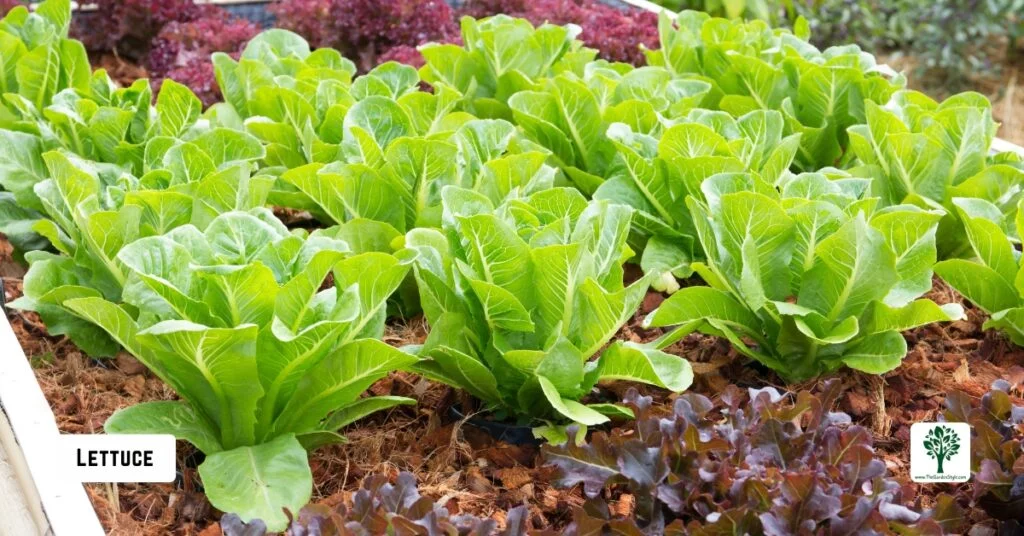
Lettuce can make a great companion for cucumbers, as it helps provide shade for the cucumber roots. This can be especially beneficial during hot summer months, helping to prevent the soil from drying out too quickly and preserving moisture for the cucumber plants.
Beets
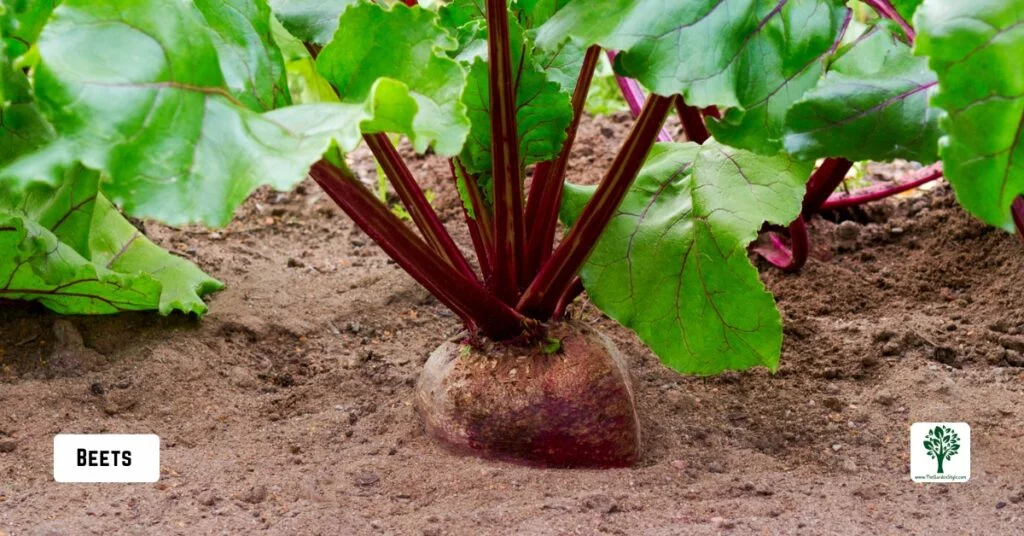
Beets are another unlikely companion for cucumbers, but they can be quite helpful in deterring cucumber beetles. The strong scent of beet greens can confuse and deter these pests, helping to protect your cucumber plants from damage.
Catnip
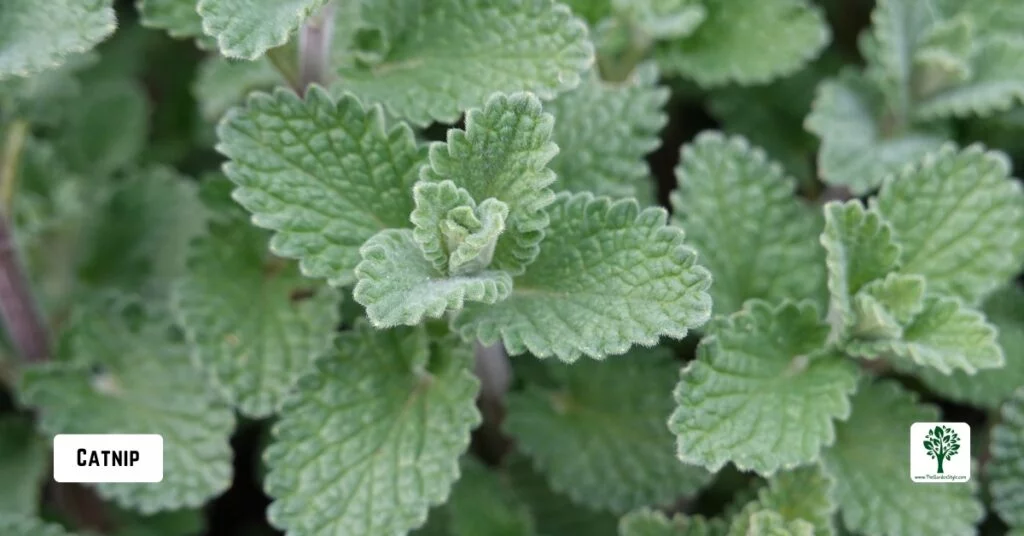
Catnip, while primarily known for its attraction to felines, can also be a useful companion plant for cucumbers. Its strong scent helps to repel aphids, ants, and other pests that might otherwise attack your cucumber plants. Additionally, catnip is a low-growing plant, so that it won’t compete with your cucumbers for sunlight or space.
Chives
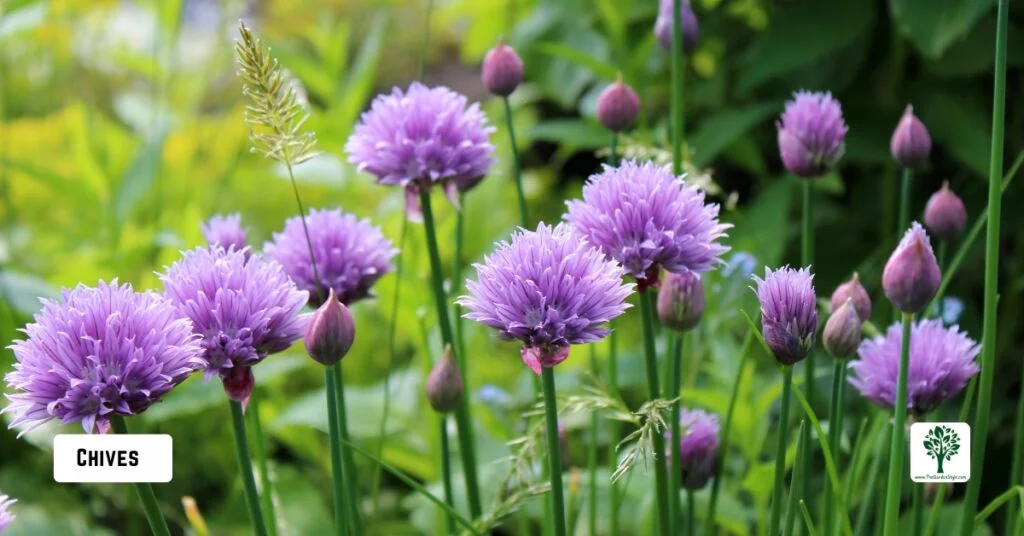
Chives are a member of the onion family and can make a great companion for cucumbers. Their pungent odor deters aphids and other pests while also attracting beneficial insects like lacewings and parasitic wasps. Chives are a compact plant that won’t compete with your cucumbers for space or resources. Learn how to plant chives.
Mint
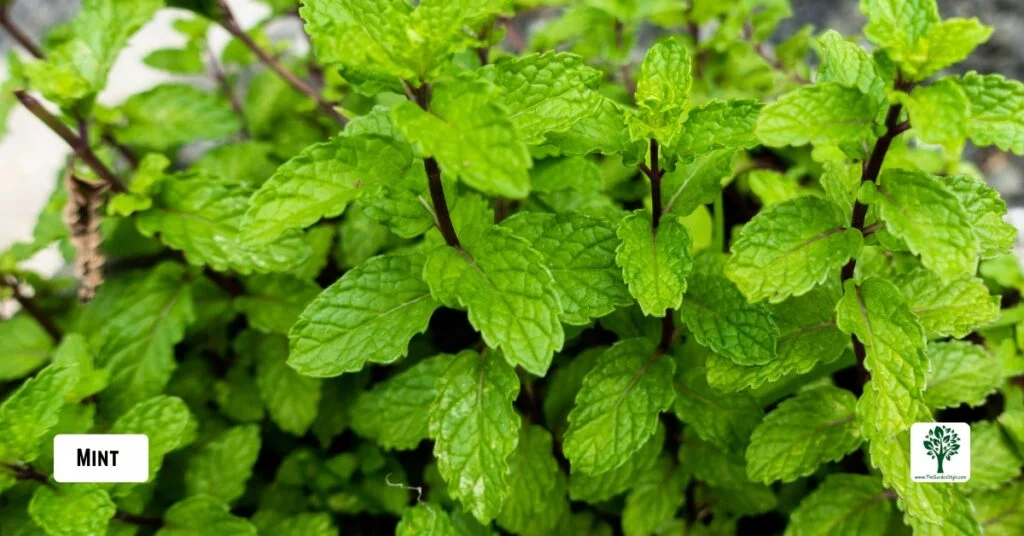
While mint can be an aggressive spreader in the garden, it can also be a useful companion for cucumbers. Its strong scent helps to deter rodents and other pests that might otherwise damage your cucumber plants. However, be sure to contain mint in a pot or raised bed to prevent it from taking over your garden.
Alyssum
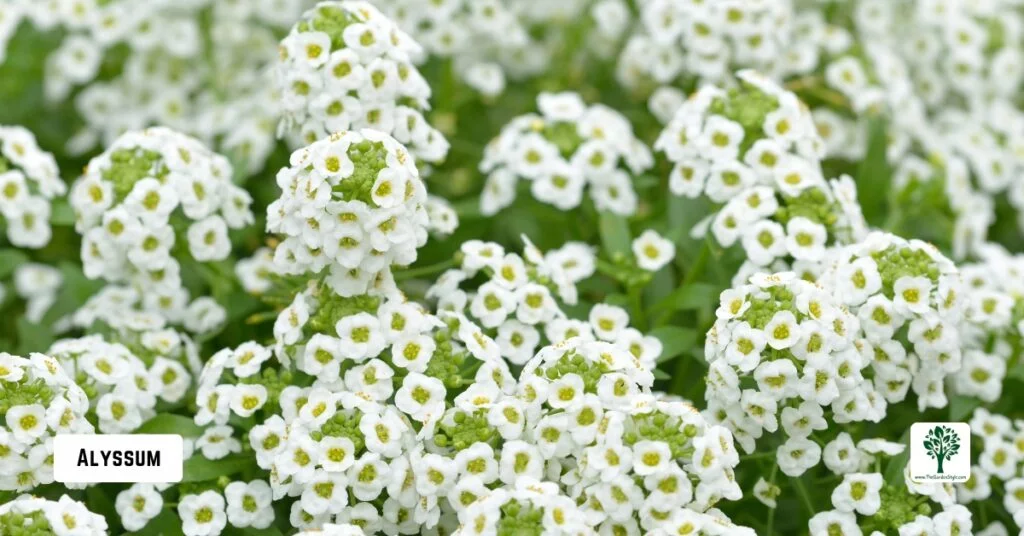
Sweet alyssum is a low-growing flowering plant that can be a great companion for cucumbers. Its small blooms attract beneficial insects like hoverflies and parasitic wasps, which can help control pests on your cucumber plants. Additionally, alyssum can help improve soil quality as it self-seeds and its roots break down.
Calendula
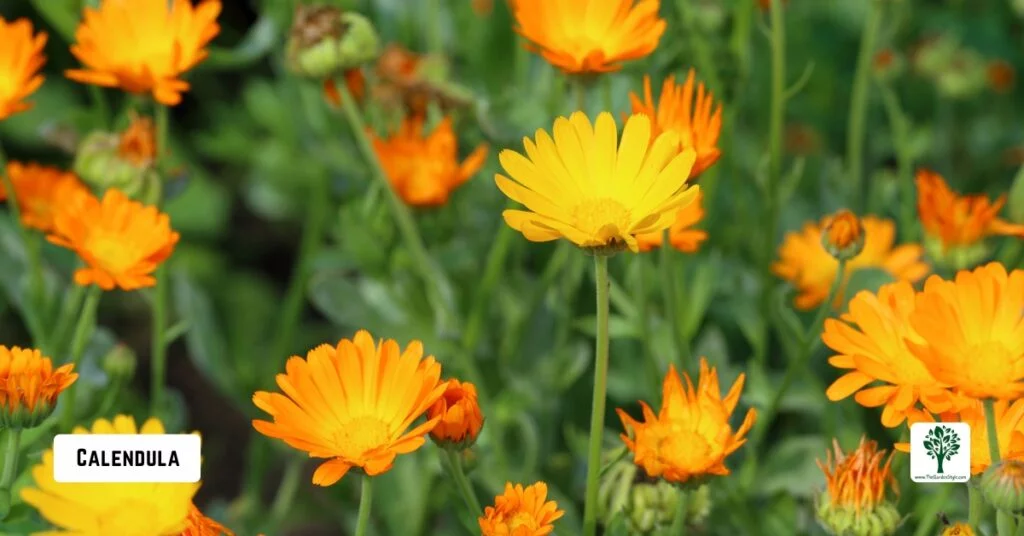
Calendula, also known as pot marigold, is another excellent companion for cucumbers. Like its relative, the marigold, calendula releases a strong scent that can deter nematodes and other pests that might harm your cucumber plants. Its bright orange flowers also add a pop of color to your garden.
Chamomile
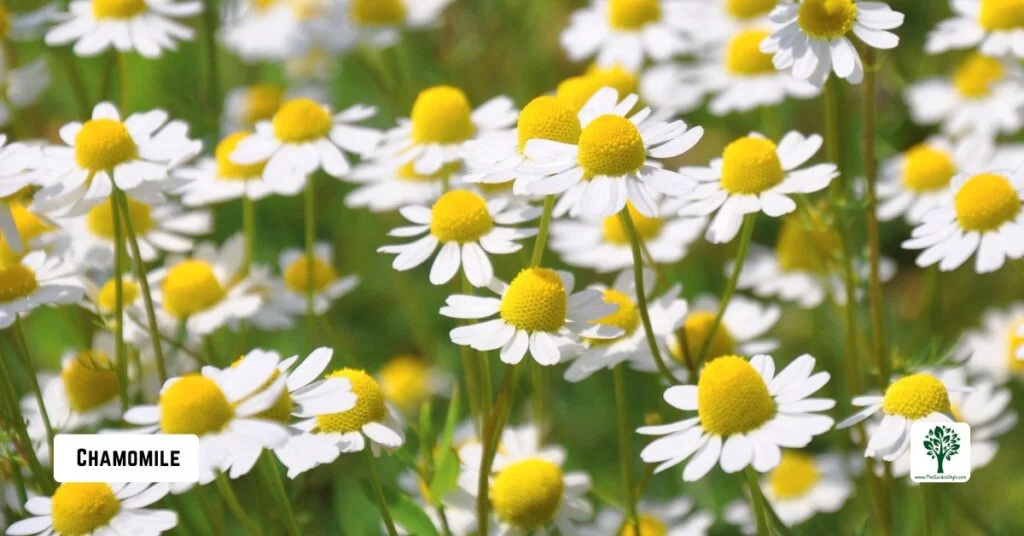
Chamomile is a fragrant herb that can make a great companion for cucumbers. Its strong aroma is known to deter pests while also potentially improving the growth and flavor of nearby plants, including cucumbers. Chamomile is a low-growing plant that won’t compete with your cucumbers for space or resources.
Corn
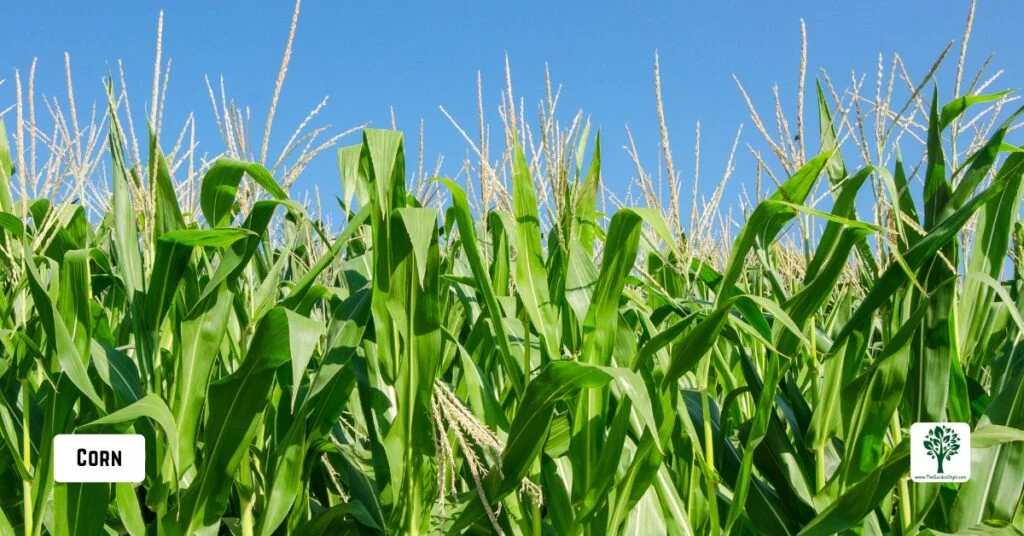
While not a traditional companion plants, corn can make a great garden mate for cucumbers. As corn grows tall, it can provide partial shade for the cucumber plants, helping to prevent them from becoming stressed in hot summer conditions. Additionally, the sturdy corn stalks can act as a natural trellis for the sprawling cucumber vines.
Plants to Avoid with Cucumbers
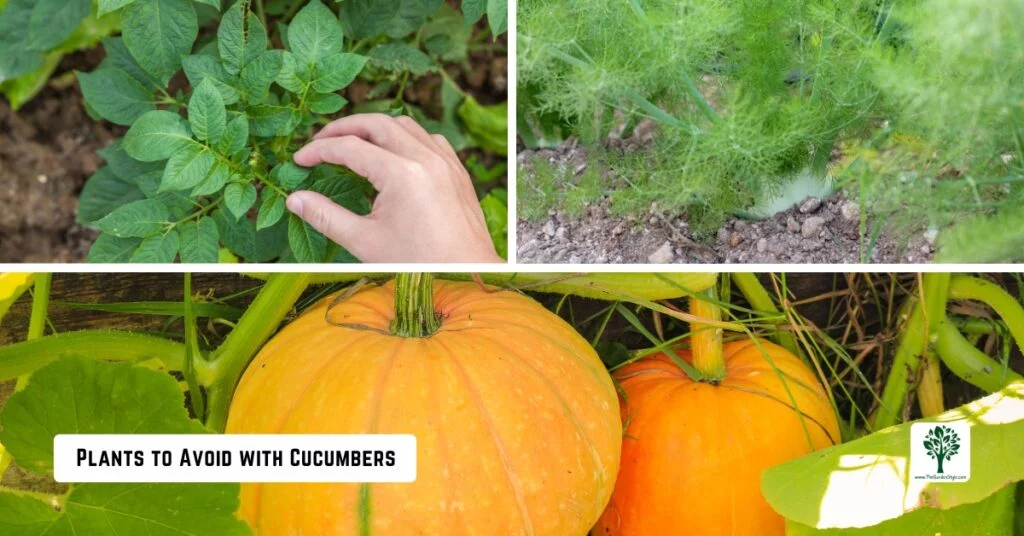
While companion planting can bring many benefits to your cucumber plants, there are certain plants you’ll want to steer clear of. Some plants can compete with cucumbers for valuable nutrients and resources, potentially stunting their growth. Others may harbor diseases that can spread to your cucumber plants or even cross-pollinate with them, leading to undesirable results.
Potatoes
While potatoes and cucumbers are both members of the vegetable family, they make poor companions in the garden. Potatoes are heavy feeders, meaning they require a significant amount of nutrients from the soil. This can lead to competition with cucumber plants, potentially stunting their growth. Additionally, potatoes and cucumbers are both susceptible to certain diseases, which can quickly spread between them.
Fennel
Fennel is another plant you’ll want to keep away from your cucumber patch. Fennel releases compounds that can inhibit the growth of nearby plants, including cucumbers. Additionally, fennel can attract pests like aphids and whiteflies, which can then move on to your cucumber plants.
Other Cucurbits
While other members of the cucurbit family, such as pumpkins and squash, may seem like natural companions for cucumbers, they can actually cause problems. These plants can cross-pollinate with cucumbers, leading to funky-looking and potentially inedible fruits. Additionally, they compete for the same resources in the soil, which can limit the growth of all plants involved.
Tips for Successful Companion Planting with Cucumbers
Now that you know the best and worst companions for your cucumber plants, here are a few tips to ensure successful companion planting:
- Spacing and Layout: Pay attention to the spacing requirements of each plant and plan your garden accordingly. Overcrowding can lead to competition for resources and increased disease risk.
- Crop Rotation: Rotate your crops each year, including your companion plants. That helps to prevent soil depletion and reduce the risk of disease and pest buildup.
- Observation and Adjustment: Keep a close eye on your plants and adjust your companion planting as needed. If you notice one plant outcompeting another or a pest problem arising, make changes to maintain a balanced ecosystem.
Frequently Asked Questions
The ideal spacing for companion plants will depend on the specific plants involved. As a general rule, you’ll want to plant companions close enough to benefit from their mutual relationship but not so close that they compete for resources. Refer to the specific spacing requirements for each plant and plan accordingly.
Yes, cucumbers can cross-pollinate with other members of the cucurbit family, such as pumpkins, squash, and melons. That can lead to strange-looking and potentially inedible fruits. To avoid cross-pollination, it’s best to keep cucumbers separated from other cucurbits in your garden.
While companion planting is often associated with in-ground gardens, it can also be done in containers. Just be mindful of the space requirements for each plant and choose compact varieties that won’t outgrow the container. Good companion options for container-grown cucumbers include radishes, marigolds, and nasturtiums.
If this post about the best companion plants for cucumbers was helpful, please share it:
